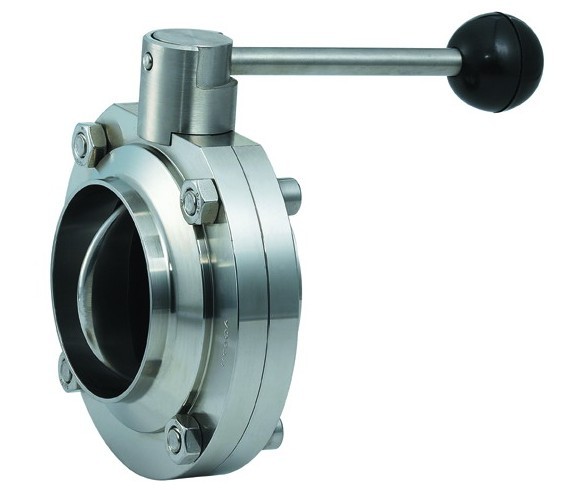When valves used for sulfuric acid, hydrochloric acid, nitric acid, acetic acid, alkali (sodium hydroxide), ammonia (aqua ammonia), chlorine (liquid chlorine) and brine (seawater), alcohols, ketones, esters, ethers and other corrosive media, corrosion resistance is the most critical. If metal materials for chemical industry valves cannot be chosen with carefulness, it may damage equipment, or even resulting in accidents and disasters. The followings are the key points used to choose materials of chemical industry valves for corrosive media.
1. As one of strong corrosive media, sulfuric acid is an important industrial raw materials having wide application. Sulfuric acid having different concentrations and temperatures has large variant corrosion on materials. For concentrated sulfuric acid whose concentration is above 80% and temperature is below 80℃, carbon steel and cast iron have better corrosion resistance. However, they are not suitable to be used as valve materials for sulfuric acid having high flow velocity. Common stainless steel such as 304 (0Cr18Ni9) and 316 (0Cr18Ni12Mo2Ti) has limited application for sulfuric acid. So, pumps and valves used to transmit sulfuric acid are made of high silicon cast iron (having difficulty on casting and processing) and high alloyed stainless steel. Fluoroplastic has good corrosion resistance to sulfuric acid. Using tefulong valve is a more economic choice. If the pressure is overlarge and temperature is rising, plastic valves are impacts.
Ceramic ball valve which is more expansive than plastic valve is only choice.
2. Due to features of hydrochloric acid, most of metal materials have poor corrosion resistance to hydrochloric acid. High silicon containing molybdenum only can be used for hydrochloric acid whose concentration is below 35% under 50℃. Contrary to metal materials, most of non-metallic materials have good corrosion resistance to hydrochloric acid. So, rubber lined valve and plastic valve (such as polypropylene and fluoroplastics) are the best choice for transmitting hydrochloric acid. If temperature is higher than 150℃ and pressure is larger than PN16, all of plastics (including polypropylene, fluoroplastics and Teflon) cannot afford it. However, ideal valves still do not appear on market. New ceramic ball valve can be tried. The ball valve has advantages of self-lubrication, low torque, ageing resistance and longer service life than common valves, while the disadvantage is that the price is much higher than plastic valves.
3. Common metals are corroded quickly in nitric acid. Stainless steel is nitric acid resistant material having the most widely application. It has good corrosion resistance to nitric acid having any concentrations. What should be noticed that corrosion resistance of stainless steel containing molybdenum (such as 316 and 316L) is not better than common stainless steel (such as 304 and 321), even poor sometimes. Got nitric acid having high temperature, titanium ball valve and titanium alloy are commonly used.
4. Acetic acid id one of organic acids have the strongest corrosion. Common steel can be corroded seriously in acetic acid under any concentrations and temperatures. Stainless steel is good corrosion resistance material to acetic acid. 316 stainless steel containing molybdenum is suitable for high temperature and dilute acetic acid steam. For acetic acid having high temperature and concentration and other corrosive media, high alloyed stainless steel or fluroplastics can be chosen.
5. Steel is widely used for sodium hydroxide solution whose temperature below 80℃ and concentration lower than 30%. For the concentration of sodium hydroxide solution below 75% under 100 ℃, common steel is still adopted. It has good economical efficiency although corrosion grows. Compared with cast iron, common stainless steel has no obvious advantages to corrosion resistance of alkali liquors. If a few irons are allowed to soak into media, stainless steel is not recommended. For high temperature alkali liquors, titanium gate valve, titanium alloy or high alloyed stainless steel are mostly used.
6. Most of metals and non-metallic materials are slightly corroded in liquid ammonia (aqua ammonia). Only copper and copper alloy are not used.
7. Most of metal valves have limited corrosion to chlorine, particularly under situation that chlorine containing water, including various alloy steel valves. However, toque growing and PTFE ageing come out if PTFE lined valve is used for a long time. Under such situation, leakage l is lethal. PTFE lined ceramic ball core can be used to replace of common PTFE lined valve, combing self-lubrication of ceramic and corrosion resistance of PTFE.
8. Common steel has low corrosion rate in sodium chloride solution, seawater and salt water and it is usually protected by coating. Various stainless steels also have low uniform corrosion rate. But partial corrosion may be caused by chloride ions. In general, 316 stainless steel is used.
9. Common alcohol media contain methyl alcohol, ethyl alcohol, ethanediol and propyl alcohol. Ketone media include acetone and butanone. Ester media include methyl ester and ethyl ester. Ether media are methyl ether and butyl ether. They have no corrosion basically. All of materials are suitable. Rational choices are made based on features of media and requirements. In addition, ketone, ester and ether have solubility to different rubber. Faults should be avoided when choosing sealing materials.
